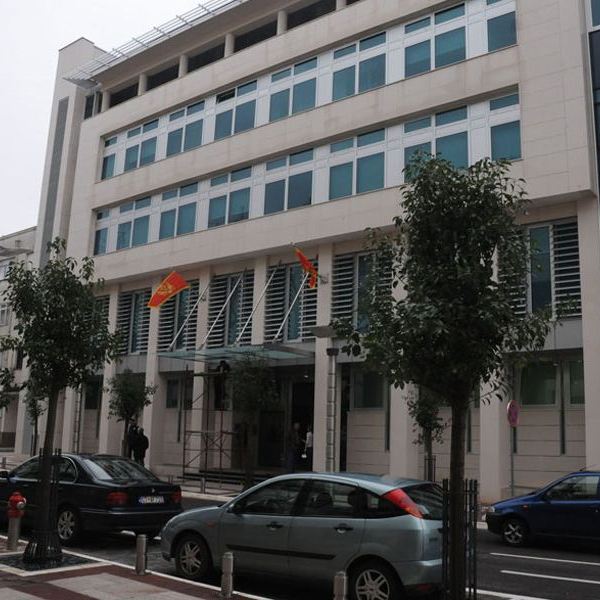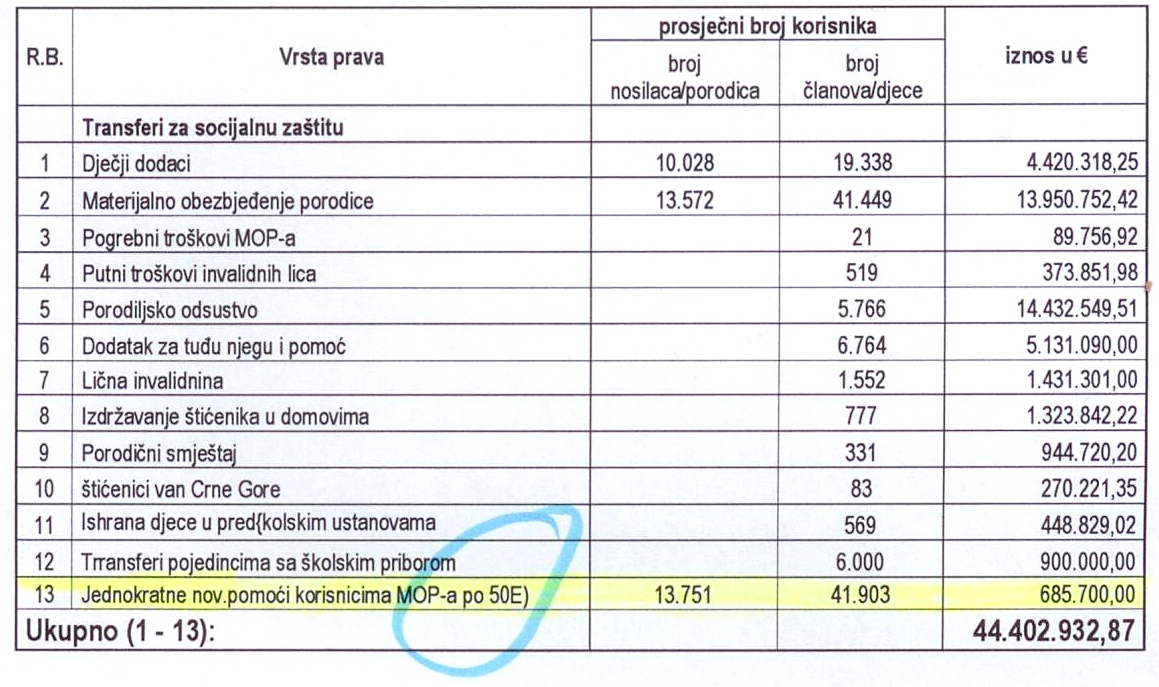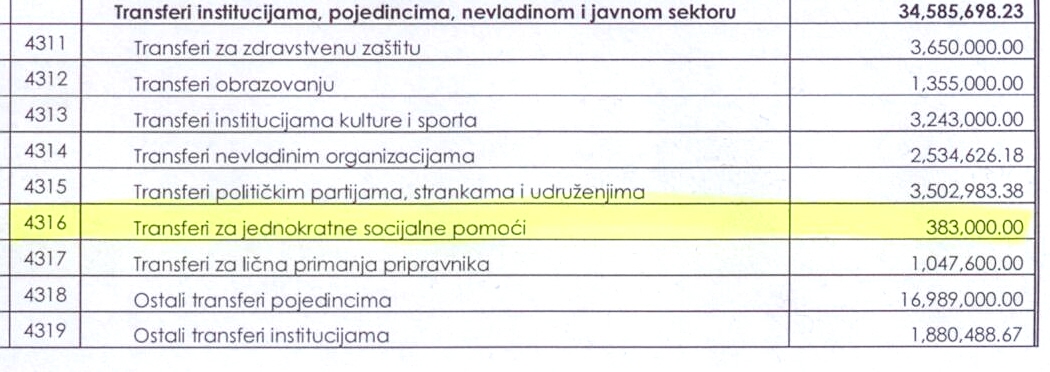 (Podgorica, 12 April 2013) – Official results indicate that for the first time the Government of Montenegro in the 2013 Budget openly introduced a line-item of one-time social assistance. This is the same type of social assistance that we suspect the Democratic Party of Socialists (DPS), in light of the October 2012 parliamentary elections, was using to the maximum to purchase votes on the ground. Besides this, the analysis carried out by MANS demonstrated that during election years the payment of various forms of social assistance are significantly increased.
(Podgorica, 12 April 2013) – Official results indicate that for the first time the Government of Montenegro in the 2013 Budget openly introduced a line-item of one-time social assistance. This is the same type of social assistance that we suspect the Democratic Party of Socialists (DPS), in light of the October 2012 parliamentary elections, was using to the maximum to purchase votes on the ground. Besides this, the analysis carried out by MANS demonstrated that during election years the payment of various forms of social assistance are significantly increased.
Some €383,000 were set aside for one-time social assistance, €300,000 of which is linked to the PIO Fund (Pension and Disability Insurance). During its 28 March 2013 session, i.e. 10 days prior to the presidential elections, the Government of Montenegro adopted a proposals to redirect funds from the PIO Fund to the Ministry of Labor and Social Security.
This proposal to redirect funds wasn’t publicly announced. We suspect that we are dealing here with the funds that were used in the lead up to the presidential elections to buy votes. For this reason, MANS has requested through the Law on Free Access to Information access to all the relevant documents related to these decisions.
This is particularly necessary, since MANS’ previous research into the one-time social assistance used in the lead up to last October’s parliamentary elections pointed to serious abuses of public resources. At the time, MANS’ researchers were able to reveal by examining the distribution of social assistance in the municipality of Plevlja, how the DPS would purchase votes on the ground for €50 by means of a well organized party blueprint.
Enormous payouts of one-time monetary assistance in the lead-up to elections was also noticed in other cities. MANS has also determined that money for Social Work Centres were diverted from the Ministry of Labor and Social Security.

At the same time, serious doubts exist that other types of social assistance are also being used as an incentive to secure votes during elections. That is, the Law on Social and Child Protection clearly stipulates fixed sums for various types of social assistance.
The Material Security of the Family (MOP) fund, depending on the number of household members, allow for monthly instalments of between €50 to €95. For child support, the payouts are between €15-€25 a month, while €50 can be set aside for care and assistance services rendered to elderly or disabled dependents.
It is interesting to note that in the last two electoral years, the number of eligible social assistance recipients has increased by some 5,750 persons when compared to 2011 (a non-election year). On this basis, an extra €4-million has been secured from the budget since 2011 to cover these categories of assistance.
As for the MOP, nearly 2,750 extra recipients are receiving this form of assistance than in the last non-election year. The budget has set aside some €18-million for this purpose, that is an 18.5% increase in funds in relation to 2011.
That is, MANS’ analysis demonstrates that in 2013 an additional €2.8-million was set aside for the MOP (i.e. an extra €234,000 on a monthly basis). When this number is divided by the average receipt of a four-member family, which is roughly €85/month, then we receive more than 2,750 new users.
Furthermore, on the basis of the yearly reports of the Ministry of Labor and Social Security, we can clearly see that in 2012 alone, the number of MOP recipients increased by 800 families (that is 2,500 individuals).

MANS has also revealed that in 2012, when 14 municipalities held local elections, the Ministry distributed nearly €686,000 for 14,000 families that receive the MOP. It is interesting that the individual payout of one-time social assistance was some €50. MANS research has already shown that this is the exact amount that was also distributed in the lead up to last October’s parliamentary elections.
As for child benefits, MANS has found that the budget has set aside in the last two years, nearly half-a-million more euros than in 2011. This means that on a monthly basis €38,000 is set aside, which divided by the average distribution of child benefits worth €20, shows that there were almost 2,000 new users of this form of social assistance.
At the same time, the 2012 Report of the Ministry of Labor and Social Security, demonstrate that in the first half of that year the number of child benefit users increased by 800, while in the second half of the year the Ministry didn’t include a tabulated total that would demonstrate the increase in recipients.
Similarly, when it comes to benefits related to the care of dependents, calculations demonstrate that the number of users increased in this category as well in the last two election years. That is, in 2013, an additional €600,000 was set aside (or an additional €50,000 / month). Divided by the legally mandated amount of €50 per recipient, this would yield an additional 1,000 new users of this right in relation to 2011 (which did not have elections). The aforementioned Ministry of Labor and Social Security report of 2012 demonstrates that the number of users was increased by 700.
MANS has demanded information from the Commission for the Distribution of Resources from the Budgetary Reserves concerning the payment of both current and permanent budgetary funds. The 2013 Budget foresees reserves of €8.1-million. According to the Regulations on the use of Budgetary Reserves, among other stipulations, it is noted that funds can be distributed for individual assistance related to medical costs, education, or the improvement of one’s material situation.
MANS has previously requested that the Commission, headed by minister without portfolio Rafet Husovic, submit official data. However, this institution has till now refused to submit to us information that isn’t publicly available, thus opening up space for the abuse of budgetary reserves for political purposes.



